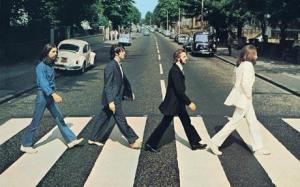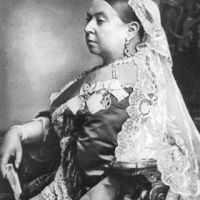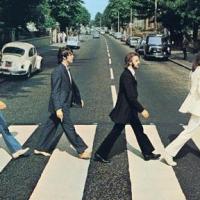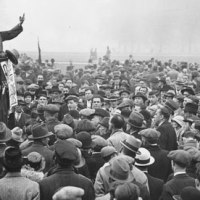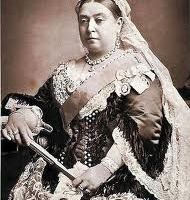Chewing the Cud over GMT and BST…..
 Very soon I will give the hour back which I received 5 months ago. In seven months time I shall reclaim it.
Very soon I will give the hour back which I received 5 months ago. In seven months time I shall reclaim it.
I don’t know who is the beneficiary of my sixty minutes, nor do I know who returns it.
I do know that every year since the day I was born I have, with great philanthropy, parted with an essential essence of my life – my time – but comforted in the knowledge that I only permitted it’s borrowing on a short term loan.
I gave it free, without interest, yet if time was indeed money, I could have become very wealthy over the years had I charged for it.
After all, if I asked my bank manager for a loan he wouldn’t give it to me for free just because I promised to return it promptly after seven months. The difference of course is that my time is priceless, and although it is unique it has no monetary value.
I can invest it, I can spend it, I can save it and I can waste it. I cannot hold it. I cannot keep it. I cannot preserve it. It is gone in a moment – and lost in a memory.
I can think of nothing more valuable, more essential than time, yet it is not oil, not gold, not silver, not platinum. My time is more precious than metals and minerals, but it is all mine – every single second of it. It’s value is incalculable.
At 02.00 on the last Sunday of March (as is always the case) I will say hello to British Summer Time, or on the last Sunday of October, return to the dark days of Greenwich Mean Time.
It’s an economic decision that I have no choice over. A few years ago the UK government considered the Daylight Savings Private Members Bill to abolish GMT and align the British Isles with CET (Central European Time), which would have meant more light at night and less light at morning. Longer summer evenings, and maybe an hour more light in winter resulting in longer darker mornings. It would have suited the more southern English, but not the northern Brits. In any event, the bill was rejected, and it’s not likely to reappear again for some time.
Any change in daylight saving policy won’t change the orbit of the earth, no more than it will stop the sun from rising and setting at inconvenient times for commerce and industry.
The cows in the fields will chew the cud regardless. The sheep will be fairly laid back and the pigs are unlikely to grunt in dissent. The cocks will continue to crow at dawn, and the chickens will lay their eggs without cracking up at the stupidity of it all.
The EU will be happy because everything will be standardised. But they tried that with the Euro and look what happened.
They can mess around with money. Surely we can’t allow them to mess around with the clocks as well?
I just don’t have the time for it.
The Baby Boomers…….
If you were born between 1946 and 1964 then you are officially a “baby boomer”.
You’re as old as 73 and as young as 55 – assuming you’re reading this in 2019.
Baby Boomer is the term used for the generation born during the 18 years after WWII, which by all accounts changed the world and has become responsible for all the ills of society.
The first batch of boomers heralded the age of the teenager and the swinging sixties. A sixteen year old born in 1946 would have sailed through the austere 1950’s, would have abandoned Bill Hailey and the Comets, Frank Sinatra and the balladeer crooners, rejected their parents hand-me-downs, and embraced 1962 with pop music and liberation. Cliff Richard and the Shadows were the face of the young and around the corner loomed the Beatles and the Rolling Stones. Even Elvis was getting old hat.
Their parents by contrast were the generation which suffered in the depressing thirties, and then went off to war.
Indeed their parents before them would have gone through the First World War, and they certainly would have had no concept of being a teenager – they would have left school at 12 or 14 and then went to work – there was no room for anything else.
By 1966 our hero or heroine – the subject of this post and first born boomer – would be 20 years old, fashion conscious, sexually liberated, rocking to Mick Jagger or rebelling along with Bob Dylan. Later he or she would have a good job, money in the pocket, and an access to university long denied from the forebears.
Their peers would have their minds and horizons broadened and take to the streets to protest about the Vietnam war, join CND and march to “Ban the Bomb”. They were the “have it all” generation. If they didn’t get great jobs, they would still get good jobs – jobs which they could secure for 35 years and retire comfortably.
Such was their opportunity; they bought houses, raised families, and became more affluent than any generation gone before. They went through a period of relative peace (in the UK at least), did not fight any wars, and were not conscripted for national service, and even the threat of nuclear Armageddon and cold war politics fazed them not.
Our twenty-year old pot-smoking hippy (who danced at Woodstock), became either a bog-standard pillar of the establishment or found his way into the echelons of society – and if he didn’t become a captain of industry he took a seat in Parliament responsible for the very society he had fun to reject.
The mantra of Roger Daltry and the Who – Hope I die before I get old – was just a juvenile distraction.
Our first baby boomer has retired now. He has even escaped the austerity cuts and his pension is secure. His life was one of incredible social change and privilege which saw a National Health Service, a welfare state, security, peace and financial wealth.
But is he happy? He has seen the erosion of values, the erosion of community, the destruction of the nuclear family – all factors which held his parents and grandparents together.
Our 1960’s teenage angry young man now complains about the lack of values, waxes lyrically with nostalgia and regrets sentimentally about his parents generation – moans about the state of the nation, deplores the loss of standards, and castigates the young with their disrespect and irreverence for authority.
He wants to bring back hanging and flogging, he wants to incarcerate them, he wants to punish them with the full force of the law.
In 1966 he didn’t want to know about 1945 – he didn’t want to know about the hardships his parents suffered. What he wanted was a comfortable life.
Well he got it – so the best thing he can do now is stop being a hypocrite, and stop bloody moaning.
Edith Piaf
“The Little Sparrow was the epitome of the classic French chanson: supercharged, even melodramatic, and emotionally extracting every last drop of sentiment from a lyric.”
 The singer gained popularity as she toured France, her petite frame concealing an energy which would drive her to the pinnacle of her profession, singing in cabarets and vaudeville theatres and, from 1936, performing on radio and recordings.
The singer gained popularity as she toured France, her petite frame concealing an energy which would drive her to the pinnacle of her profession, singing in cabarets and vaudeville theatres and, from 1936, performing on radio and recordings.
Her great fame came after World War II, with her song “Le Vie en Rose” becoming an international standard.
During World War II she worked with the French Resistance by using her popularity to have herself photographed with French prisoners that she had performed for. These photos were then used to make identity papers that would be smuggled back to the prisoners during her return engagements.
Born Edith Gassion on December 19, 1915, in Ménilmontant, a poor district of Paris, legend has it she was born under a street light on the corner of the Rue de Belleville, with two policeman in attendance.
A difficult and exploited childhood led eventually to her being found singing on a street corner in the Pigalle area in 1935 by Louis Leplée, a cabaret owner. Leplée took the young singer under his wing and renamed her “La Môme Piaf” (which in Parisian slang translates roughly as “the little sparrow”.]
The voice of Edith Piaf carries with it perhaps more national identity than that of any other recorded artist in the world. Tiny, frail, and tragic in her life, Piaf brought French identity to the rest of the world in a way that was understandable to all.
Her voice was strong, bold, and passionate, even as she grew more frail and infirm.
When she died on October 11th, 1963 the news heralded a nationwide outpouring of grief, two million people jammed the streets of Paris, stopping traffic to watch her funeral procession.
Her grave at Père-Lachaise has become a shrine for thousands of visitors every year, and her music continues to stir the heartstrings with vibrant, passionate and yet vulnerable emotions.
Edith Piaf was one of the most popular female singers of all time, with a unique voice and talent that conquered the hearts of admirers around the world.
Her life story was truly remarkable: from her birth in 1915 on a policeman’s cape, under gaslight, to her extraordinary love affairs and heart-breaking tragedies, she was a true artist that lived to sing.
A Pragmatic View on the UK Election 2015
 Pragmatism is the key to this UK General Election, yet by very nature of the word it can stifle change and continue the status quo. All of us like to think we are pragmatic. It implies we are sensible, realistic, grounded and practical. That’s why most of us who will vote on May 7th will favour the established political parties – Conservative or Labour. It’s the comfort factor – idealism is all very well, and whilst many of us will have high ideals, and may even strive for them – the fear of instability will override them. Such loyalty, although commendable, invariably reduces risk, and risk is a factor for those who want to live stable lives – regardless.
Pragmatism is the key to this UK General Election, yet by very nature of the word it can stifle change and continue the status quo. All of us like to think we are pragmatic. It implies we are sensible, realistic, grounded and practical. That’s why most of us who will vote on May 7th will favour the established political parties – Conservative or Labour. It’s the comfort factor – idealism is all very well, and whilst many of us will have high ideals, and may even strive for them – the fear of instability will override them. Such loyalty, although commendable, invariably reduces risk, and risk is a factor for those who want to live stable lives – regardless.
Families require security – they know that the Socialists will tax more to pay for essential services. By contrast they know that the Conservatives will reduce tax, but the spending power of the individual will be increased and therefore essential services will be paid through a a growing healthy economy. Both are in essence ideals – they just differ on the method of delivery.
A sensible electorate will vote for one or the other. Not because they are the only choices, but because they are the established safe choices. Yet, for the second time in five years, a majority government seems unlikely. It is the age of coalition, and until 2010 this had never happened before except during a time of war – World War II. Then it was the right thing to do – when political differences were set aside to fight a common enemy. Today we don’t have a common enemy, we just have common differences and in the mix are small parties with specific agendas, and anyone of them could play politics and hold the balance of power.
A minority Labour or Conservative government could function, but they would have difficulty implementing policy without doing deals with undesirable bedfellows. The Scottish Nationalist Party, who seek an independent Scotland within the EU (a party which recently forced a referendum to leave the UK and lost) could have influence in the very Parliament they wanted to leave. The United Kingdom Independence Party which wants to leave the European Union and have strict immigration policies could have influence likewise. The Liberal Democrats – the party which formed a coalition with the Tories in 2010 have achieved little, but believe they are the party to keep a balance on an all powerful government. The Green Party which may catch votes, are unlikely to have any significance. Then there is the Democratic Union Party who power-share the Northern Ireland Assembly with the Irish Republican party Sinn Féin. Then there is Plaid Cymru the Welsh Nationalist Party who seek an independent Wales within the EU. All will attract votes, yet all in their own way will render impotent a UK Government holding a minority.
So when Nigel Farage, the leader of UKIP declares that “all bets are off” – he is quite right.
That’s why this election is probably the most significant in modern times. A minority Labour or Conservative victory will result in deals being done with the aforementioned. Labour will not contemplate leaving the EU unless it can change it from within. The Conservatives are committed to a referendum on EU membership in 2017. UKIP want categorical and unconditional removal from the EU. The SNP want Scottish Independence. The DUP wants greater control in Northern Ireland, and Plaid Cymru wants Welsh independence within the EU without influence from a UK parliament. Neither Labour or Conservative want a coalition with any, and for the next 38 days they will surely attempt to distance themselves from any potential scenario.
Meanwhile our country is being shoved and pulled in the world of international affairs. Our military is diminished, our economic power is questionable, our values are clouded, and our status in the world is opaque.
We are the repository of wealth from the global rich, yet our own people cannot afford to live in their own Capital. Our treasured jewel the National Health Service is under attack, our fundamental values which we imparted to the world of care for the elderly, sick, disabled and less fortunate have now – in a dramatic turnaround – become ideals, and our prided pragmatism is now seriously questionable.
Game of Thrones and The Walking Dead…….
The Walking Thrones. Or is that the Game of Dead? I’m confused.
These two dramas have captured the imagination of press and public, and I’m not sure what I’m watching any-more. Having said that, I like the Walking Dead purely because of it’s US 2nd Amendment agenda, which encourages and gives right to the American citizen to bear arms.
In the event of a zombie apocalypse, those with guns will survive. It’s a grand shoot ’em up, and the beauty of it is that they can happily fire away, comforted in the knowledge that their targets are already dead. A gorefest of violence, justified as survival. In between we find a disparate and dysfunctional motley array of individuals who find it impossible to leave Kansas…or is that Georgia? Does it matter?
By contrast the Game of Thrones is pure fantasy – a cross between Shakespeare’s Titus Andronicas and the legends associated with the Sub Roman-British Dark Ages. Hence why British thespians are keen to play a part – however small, however short.
Being pure fantasy anything is possible. Sex, violence, tribal war, torture and political intrigue all play a part, and in essence the author George R R Martin sourced much of his research with the War of the Roses. Yes, the infamous Red Wedding scene described as too extreme for audiences to handle was based on historical records. Fact is stranger than fiction.
I’ve only just finished the latest series of the Walking Dead. This drama encourages young people – children no less – to carry guns and use them – a veritable plethora of hand and semi-automatic weapons.I seriously worry about that portrayal.
Sure, they use them to defend themselves against the rampant zombies – but I find it extremely disturbing that this is acceptable drama, and it can only encourage sections of the US public to ingratiate their children with the gun.
My point being that a drama designed for entertainment, surreptitiously aids the gun lobby, the NRA, and as children will be watching, enthuses them to emulate the scenario. I regard this as the height of irresponsibility. Some kids may emulate Superman and think they can fly – most are sensible enough to know that Superheroes are fiction – but in the Walking Dead, the message is a child can legitimately carry and use a gun. This is dangerous territory.
By contrast, guns are not present in the Game of Thrones (for all the violence), and most people know that dragons don’t exist. It is pure entertaining fantasy, in a fantasy world, populated by fantastic people. That’s the difference.
The Walking Dead is a survivalist’s dream. A nightmare in the modern world, where the survival of the fittest is key. There is no room for the weak in this world. They are surplus to requirements. After this length of time, isn’t it time that it projected a positive agenda? Or expressed some intelligent dialogue of predicament? No, it carries on, shooting, blasting, worshipping the power of the gun – in the name of entertainment.
Perhaps we expect too much from it, and should watch it purely for what it is – science fiction and popcorn fodder. But here’s a thought. After four series not one protagonist has discussed the way of the world, nor addressed the question of circumstance, nor attempted to analyse the predicament, investigated, or sought solution. Not one theory has been expounded.
It’s time to bury the dead.
Related articles
Oyster – the World of Transport for London
I took the car to the garage to have it's exhaust replaced, left it there and returned home by bus.
Upon entering I asked the driver (as I produced some strange metal objects from my pocket) how much to get to my stop?
He looked at me as if I'd just landed from Mars. "Are you paying cash?" he said astonished. I affirmed it. "That's £2.40" he replied, in what was clearly a state of shock. So I gave him £2.50. "Haven't you got the right money?" he grumbled.
"I only want 10p change" I said (I mean it wasn't as if I was giving him a fiver, which he would probably have rejected anyway). So he fumbled around in a little box and produced my 10 pence coin. I asked him if he'd ever heard of the concept of loose change. "Nobody pays by cash any more" he muttered. "Well, I don't get out much" I replied.
Bardiness #300
"Who said watching paint dry wasn't fun?"
They couldn't have been more wrong!
I've been neglecting my platform here due to a new-found interest in watercolour painting (some examples on the right).
I find it more enjoyable than writing. Don't get me wrong, I'm still opinionated with specific observations and have considerable issues to address which normally I would dissect and present in an informative and humorous way as possible.
Game of Thrones
As usual I have arrived late to the party.
In this instance the "Game of Thrones" which is aired on Sky Atlantic.
I must admit I shy away from mythological fantasy, especially if penned by such questionable luminaries as J R R Tolkien, C S Lewis, and dare I say, J K Rowling. (Notice how each author initialises their moniker!)
So not being a Sky subscriber I was ignorant not only of the TV production but also the author who inspired it – George R R Martin (two initials in that one – must be a winning formula) from his collection of epic novels entitled "A Song of Ice and Fire".
Dan Brown – Inferno
A restaurant chain in the Philippines has reacted with a marketing coup in response to Dan Brown's new novel "Inferno".
Unlike the humourless Francis Tolentino, Chairman of the Metropolitan Manila Development Authority (MMDA), who has taken great umbrance to one of the book's characters describing his city as "The Gates of Hell".
Tolentino is upset that a fictional character, in a fictional book, views Manila with such disgust and a place where the traffic jams last for six hours, and where prostitution is rife etc etc.
He has even accessed records from the Philippines Bureau of Immigration and discovered that Brown has never even visited the Philippines.
